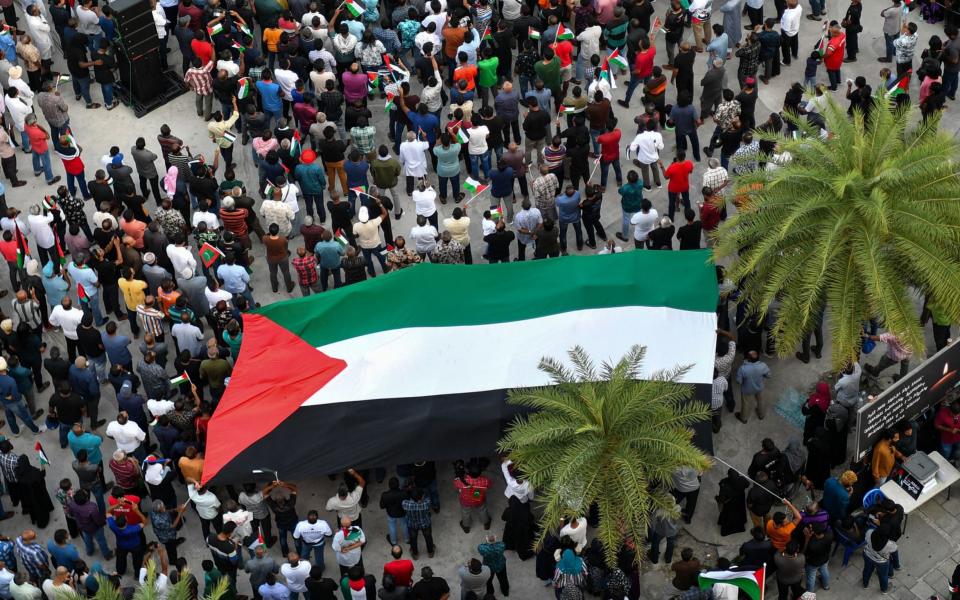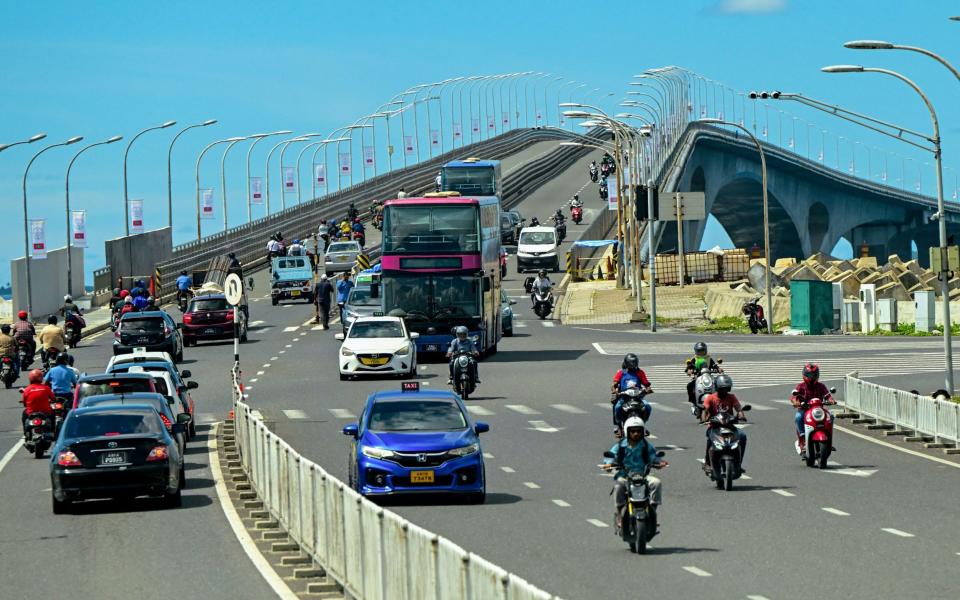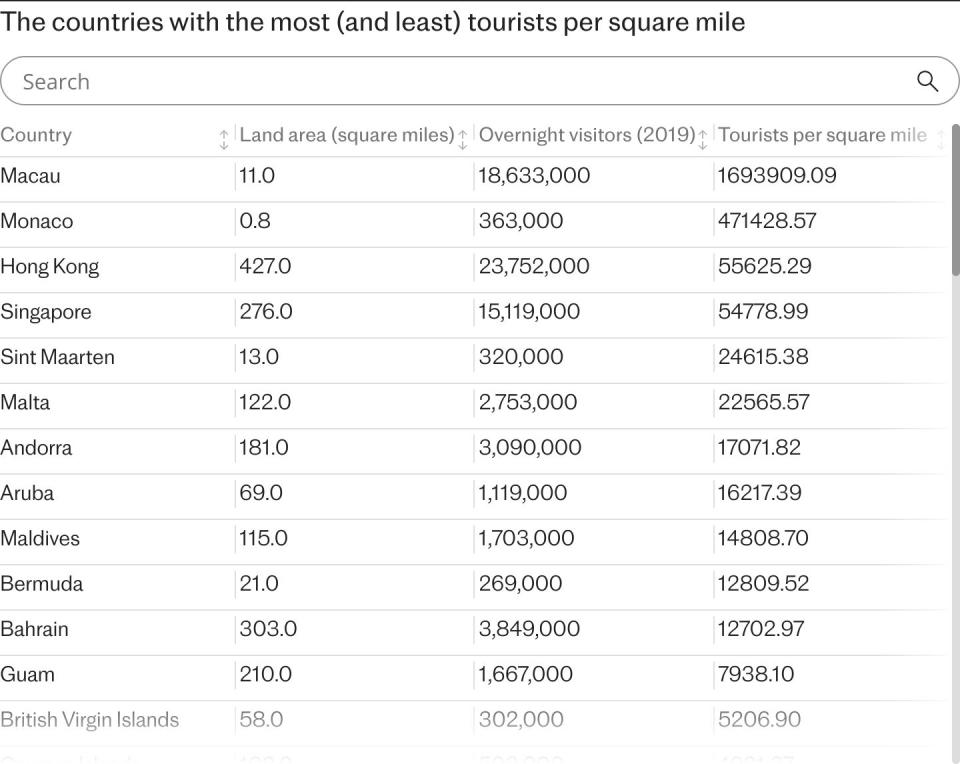With tourism responsible for 90 percent of tax revenue, the Maldives is keen to welcome international visitors. Every year the tiny island nation (population 524,000, about the size of Manchester) spends tens of millions to promote itself with one simple message: come in – if you can afford it.
Now that offer comes with a caveat: no Israelis allowed. This weekend, Mohamed Muizzu, the country’s sixth elected president, announced to the world that his government would pass new legislation to ban anyone from entering the Maldives with an Israeli passport.
The move is part of Muizzu’s broader effort to strengthen his pro-Palestinian credentials in light of the ongoing conflict in Gaza.
According to Maldivian government figures, about 11,000 Israelis visited the Maldives last year, accounting for 0.6 percent of total arrivals.
While the move may be blatantly discriminatory, it is unlikely to cause tourism bosses to lose sleep – even as some Jewish campaigners have urged a wider boycott on social media.
But could this backfire in the longer term?
For the average tourist, the Maldives remains synonymous with luxury lagoon resorts, dotted with dreamy overwater bungalows and stylish beachside restaurants. But far away from the private islands and honeymoons lie the real Maldives: a tough Islamic state with a turbulent politics.

For years, the country has tried to keep these worlds separate. But has it now shown its hidden side?
This duality may even come as a surprise to people who have visited the Maldives; many of them will have flown into Male’s charming, run-down airport and been met by representatives ready to take them to an island resort.
But how many tourists sipping cocktails at their overwater bungalows realize that on the other side of the blue water they could be fined or even flogged if they do the same?
Funnily enough, it’s not something that’s mentioned in most resorts or brochures. But with the country in the headlines for its anti-Israel stance, could it be inadvertently drawing attention to the ‘real’ Maldives?
A country where everything from conservative dress codes to public displays of affection and same-sex relationships (both prohibited) are enforced by criminal law, and where politics occasionally veer into violence.
In his excellent book The Maldives: Islamic Republic, tropical autocracyBritish journalist JJ Robinson (who edited the country’s only independent, English-language newspaper) compares Maldivian politics, at least to outsiders, to an episode of Game of Thrones.
Instead of the classic left-right divisions, parties are based on personal revenge, with governments trying to weaponize the tools of power against their opponents.
In recent years, the country’s politics appear to have taken a sharper and more nationalistic turn to outsiders. “Recent developers have certainly focused more on prioritizing the Maldives’ own interests and sovereignty,” said Viraj Solanki, a researcher at the International Institute for Strategic Studies, which has organized security dialogues in South Asia and the wider region.
In the run-up to last year’s presidential elections, current President Mohamed Muizzu aligned himself with a Trump-like “Maldives First” platform, campaigning against the Indian military’s long-standing presence in the country’s waters.
In contrast, Muizzu has been more welcoming of China, which has not gone unnoticed by the US.


Can populism pose a threat to tourism? Unlike Mallorca and the Canary Islands, Maldivians don’t take to the streets to complain about the influx of visitors (most of whom fly to their bubble islands within hours of arrival and don’t go partying in the local restaurants).
That said, the opportunities for angry protests in the Maldives are somewhat more limited than in a European social democracy.
Then there is the elephant in the room: terrorism. “Per capita, more foreign recruits for Islamic State came from the Maldives than any other country,” says Viraj Solanki.
Earlier this year, the Maldives repatriated 21 citizens (mostly women) who had joined jihadist groups in Syria. They will now undergo anti-extremism training.
Given all this, should tourists think twice about the Maldives? Despite all the geopolitical intrigue, that is probably the case for the vast majority of visitors plus one change.
When you’re on your own island, ignoring Maldivian politics is as easy as ignoring Westminster or Holyrood. Sure, it may not be the most enlightening approach to tourism, but it apparently works for a lot of people.


But in recent years, more and more tourists have tried to escape the highly manicured luxury of corporate resources. The Maldivian government, which oversees the entire tourism industry, has allowed locals to open small guesthouses on residential and fishing islands, giving visitors a chance to see real Maldivian life.
Although popular with backpackers, this was not entirely without incident. In 2014, a skirmish occurred when an Israeli surfer staying on Thulusdhoo island destroyed a poster equating the Star of David with the swastika. The action provoked an angry response from locals, with police choosing to evacuate a group of Israelis for their safety.
Incidents like these have even led a human rights activist from the Maldives to courageously raise the alarm about anti-Semitism. Ahmed Shaheed was Foreign Minister of the Maldives before becoming UN Special Rapporteur on Religious Freedoms. In 2022, he told a reporter: “I grew up in a country that was not anti-Semitic to begin with, but over time it became anti-Semitic.”
In addition to the small fishing islands, there are the two city islands of Male and Hulhumale: the equivalent of the mainland of the Maldives. When I visited the Maldives in late 2022, I made it a point to book my resort trip with a stopover each time. With approximately 500,000 residents in just a few square miles, they are as far from the typical “fly-and-flop” experience as you can get. All the better, I thought.
Hulhumale in particular may have reasonable hotels and very good South Asian restaurants. But tourists don’t get any of the exemptions they get at the resorts. Anyone caught drinking alcohol can be arrested and deported. Public displays of affection, even between married couples, can lead to persecution or an angry backlash from locals. Trudging through the moped-dominated streets often leaves you feeling like an inconvenience at best.
A small handful of visitors have experienced much worse. In 2021, a British tourist was hit by the blast from an explosion intended to kill former Maldivian President Mohamed Nasheed. A year earlier, three foreign visitors (two Chinese and an Australian) were attacked by a knife-wielding terrorist linked to a local offshoot of the Islamic State. Fortunately, all four survived.
In particular, stories of knife attacks, however rare, will inevitably send a shiver down the spine of any traveler. Yet visitors can at least make a cynical assessment of the situation: given that tourism accounts for a third of the Maldives’ gross domestic product, the government will not take the threats against travelers lightly. Anyone who joins a terrorist group risks decades in prison or even death.
While the risks to tourist safety may be reassuringly low, the Maldives remains a complicated and conflicted country, at least for anyone who bothers to do their homework. To bring that fact to the world’s attention, all for the reward of scoring some anti-Israel points, seems like a serious goal of its own.